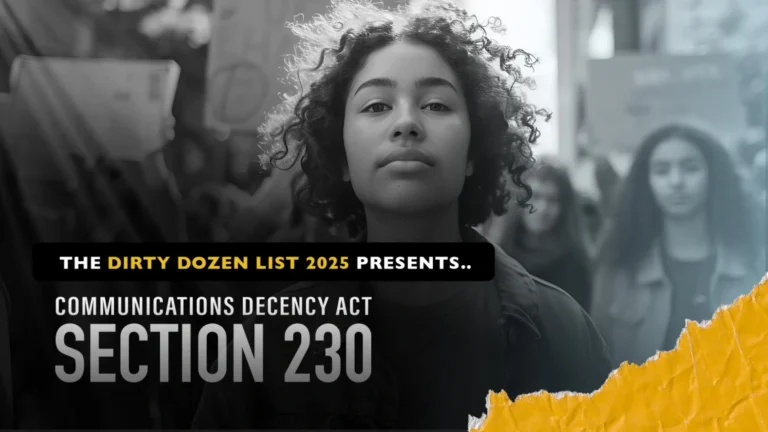As Congress returns from its August recess, the National Center on Sexual Exploitation calls on members of both the House and Senate to move swiftly to amend Section 230 Communications Decency Act (CDA)—a law that as currently interpreted by federal courts shields Internet companies that facilitate sex trafficking.
Classified advertising websites make it as easy as ordering a pizza to order human beings for sex from the privacy of one’s home, office, hotel room, or cell phone. Many of those bought and sold via such websites are sexually trafficked children and adults. One such notorious website, Backpage.com, built its entire business model on facilitating online sexual exploitation and sex trafficking, according to a U.S. Senate investigation. There is no single legal reform that is more vital to stopping sex trafficking than amending Section 230 of Communications Decency Act.
Expeditious passage of H.R. 1865 Allow States and Victims to Fight Online Sex Trafficking Act of 2017 (FOSTA) and S. 1693 Stop Enabling Sex Traffickers Act (SESTA) will move the country closer to striking a blow against the online havens that facilitate sex trafficking. We believe that reasonable reforms to Section 230 are essential to ensure that bad actors like Backpage.com can no longer hide behind the safe harbor provisions of the law when they knowingly or with reckless disregard allow sex-trafficking ads to be posted on their site.
Importantly, when the First Circuit Court of Appeals rendered its decision in Doe v. Backpage in Boston, it effectively expanded Section 230 to protect websites alleged to have engaged in criminal conduct in violation of the federal anti-trafficking law. Thus, Section 230 now protects conduct rather than speech.
These proposed Section 230 CDA amendments target only criminal conduct that never has had any First Amendment or free speech protection. The First Circuit decision noted above specifically stated that Section 230 conflicted with the TVPRA (federal trafficking statute) and that the children in the Jane Doe cases needed to seek a legislative remedy. Several judges, in dismissing similar cases against Backpage, have called on Congress to act.
We join with these members of the bench, victims, U.S. Attorneys General from 48 states, and anti-trafficking advocates from across the country in calling on the U.S. Congress to act without delay to pass meaningful reforms to the CDA.
Backpage.com is a member of the National Center on Sexual Exploitation’s 2017 Dirty Dozen List due to its history of facilitating, and profiting from, sexual exploitation. To learn more about the Communications Decency Act visit endsexualexploitation.org/cda.


